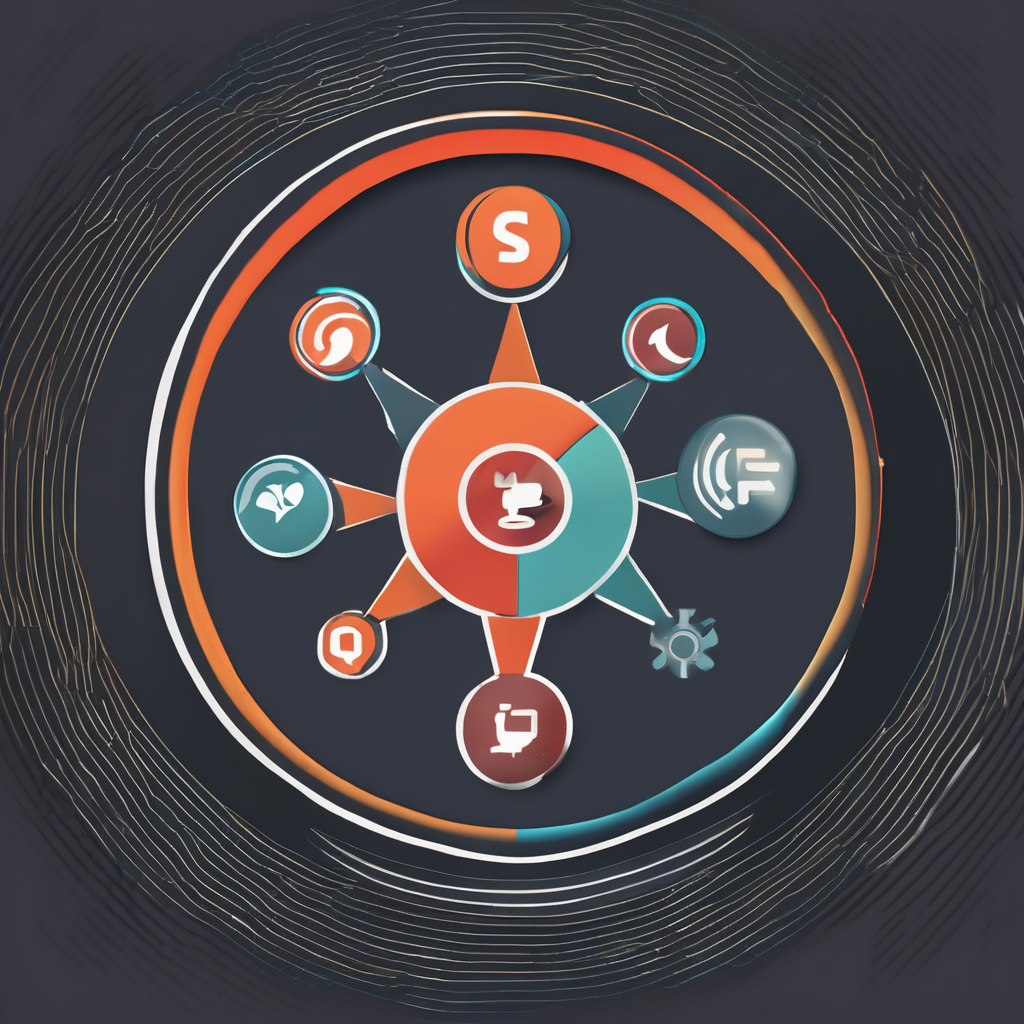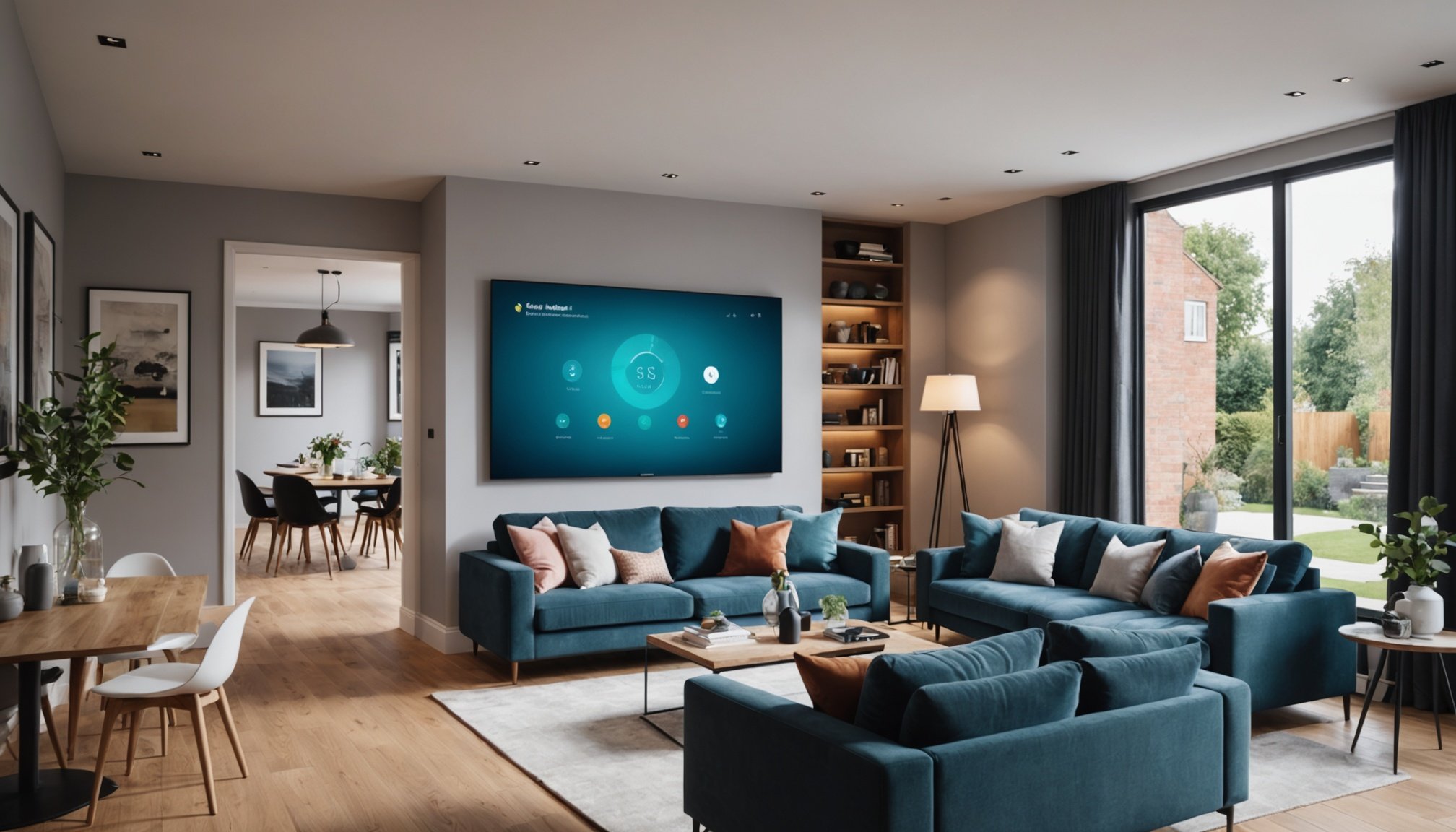Uncovering the Latest Smart Home Breakthroughs Revolutionizing UK Homes in 2023
The Rise of Smart Homes: A New Era in Living
In 2023, the smart home market in the UK has seen unprecedented growth, driven by advancements in technology, increasing environmental consciousness, and a quest for convenience and efficiency. This shift is not just about adding fancy gadgets to your home; it’s about transforming the way you live, making your home a more comfortable, secure, and sustainable living space.
Environmental Impact and Energy Efficiency
One of the key drivers of the smart home market is the focus on energy efficiency and sustainability. With the UK aiming to cut greenhouse gas emissions by 55% by 2030 and achieve climate neutrality by 2050, homeowners are increasingly seeking technologies that reduce their carbon footprint. Smart energy management systems, for instance, track and optimize energy usage, helping homeowners make eco-friendly choices. These systems, often integrated with renewable energy sources like solar panels and storage systems, ensure that power is managed effectively, reducing waste and costs[1].
Topic to read : Revolutionizing uk finance: how blockchain innovations are boosting efficiency in financial institutions
The Role of Artificial Intelligence in Smart Homes
Artificial intelligence (AI) is at the forefront of smart home innovation, enhancing user experience and functionality in numerous ways.
Voice-Activated Controls and Predictive Analytics
AI-driven voice recognition technology has made interacting with smart home devices seamless. Voice assistants like Amazon Alexa and Google Assistant are no longer just tools but sophisticated systems that learn user preferences and automate daily tasks. Predictive analytics allow smart home systems to analyze user behavior, providing personalized automation that anticipates user needs. For example, smart thermostats like the Nest Learning Thermostat adjust heating and cooling based on user behavior, leading to significant energy savings[2].
Additional reading : Comprehensive oil pipeline solutions for today's challenges
Enhanced Data Analytics and Personalized User Experiences
Smart home devices are leveraging AI-driven data analytics to provide insights into user habits. By analyzing patterns, these devices can suggest energy-saving measures or alert users to unusual activity, thereby enhancing security and efficiency. Personalization is a key trend, with devices learning individual user preferences, from adjusting lighting based on mood to curating entertainment options. This level of customization enhances user satisfaction and engagement[2].
Key Trends in Smart Home Technology
Several trends are shaping the future of smart homes in the UK.
Integration of AI in Home Devices
AI is being integrated into a wide range of smart home devices, from smart thermostats to security systems. AI-powered cameras can distinguish between familiar faces and strangers, enhancing home security. Smart diagnostics allow appliances to be remotely controlled for troubleshooting, alerting consumers before a possible issue arises[2][3].
Interoperability Across Devices
One of the significant challenges in the smart home market has been fragmentation, where devices from different manufacturers do not work well together. However, the future of smart home AI lies in seamless interoperability. Devices are beginning to communicate more effectively, creating a cohesive ecosystem. For instance, Samsung’s SmartThings app allows control over more than 200 different brands in one central place, ensuring device agnosticism and ease of use[3][4].
Smart Home Devices: A Comprehensive Overview
The smart home market is segmented into various product categories, each offering unique benefits.
Entertainment Devices
Entertainment devices, such as smart TVs, speakers, and streaming devices integrated with voice assistants, dominated the market in 2023. These devices allow users to control content and sync with other smart home devices, enhancing the overall entertainment experience. Advances in sound technology and home theater systems further add to the convenience and personalization offered by these devices[1].
Security & Access Controls
Smart home security systems are becoming increasingly sophisticated, utilizing AI to differentiate between normal and suspicious activities. These systems provide real-time alerts and peace of mind to homeowners. For example, AI-powered cameras can recognize faces and alert users to any unusual activity, making home security more robust and proactive[2].
HVAC and Home Appliances
Smart thermostats and home appliances are optimizing energy consumption and enhancing convenience. Smart diagnostics in appliances like washing machines and dishwashers allow for remote monitoring and fault finding, saving time and money. These features are particularly useful in terms of sustainability and efficiency[3].
The Impact of the Matter Protocol
The Matter protocol was launched with the promise of solving the issue of fragmentation in smart homes, but it has not yet fully lived up to its expectations.
Challenges and Limitations
Despite its goal of providing a universal standard, the Matter protocol has faced several challenges. Many manufacturers continue to prioritize their own ecosystems and protocols, making the transition to Matter complex. The setup process for Matter-compatible devices can still be challenging, involving multiple steps and troubleshooting. This complexity keeps the smart home experience fragmented, and it may take years for all devices to be fully integrated[4].
Practical Insights and Actionable Advice for Homeowners
If you’re considering transforming your home into a smart home, here are some practical insights and actionable advice:
Start with Energy Efficiency
Begin by investing in smart energy management systems and smart thermostats. These devices can significantly reduce your energy consumption and costs. For instance, smart thermostats can learn your schedule and preferences to optimize heating and cooling.
Choose Interoperable Devices
When selecting smart home devices, opt for those that support interoperability. Look for devices that are compatible with multiple platforms and voice assistants to ensure a seamless experience.
Focus on Security
Smart home security systems are crucial for peace of mind. Invest in AI-powered cameras and security systems that can differentiate between familiar faces and strangers.
Consider Health-Related Devices
Health-related smart devices, such as air quality monitors and sleep trackers, are becoming increasingly popular. These devices can enhance your overall well-being and provide valuable insights into your health.
Real Estate and Smart Homes
The real estate sector is also embracing smart home technology, making it a norm in new properties.
Built-In Smart Features
Real estate developers are integrating smart features into new apartments and homes. This trend is driven by the demand for efficient, sustainable, and convenient living spaces. Homebuyers are increasingly looking for properties that come with built-in smart features, from smart lighting to intelligent thermostats[1].
The smart home market in the UK is booming, driven by exciting trends in technology and business. As we move forward, we can expect even more sophisticated and integrated smart home solutions. Here are some key takeaways:
- Environmental Sustainability: Smart homes are becoming more energy-efficient, helping homeowners reduce their carbon footprint.
- AI Integration: AI is enhancing user experience, from voice-activated controls to predictive analytics and personalized user experiences.
- Interoperability: The future of smart homes lies in seamless interoperability across devices from different manufacturers.
- Practical Benefits: Smart home devices offer real-time data, automation, and significant cost savings.
As Rebecca Hobson, BSH connected home lead, notes, “IoT has become a seamless, integral part of connected appliances and that connectivity is proving to be a lasting and transformative trend, offering unparalleled convenience”[3].
Detailed Bullet Point List: Key Features of Smart Home Devices
-
Smart Thermostats:
-
Learn user behavior to optimize heating and cooling.
-
Integrate with renewable energy sources.
-
Provide real-time data on energy usage.
-
Adjust settings based on user preferences and schedules.
-
Smart Lighting:
-
Controlled via voice assistants or mobile apps.
-
Adjust brightness and color based on user preferences.
-
Integrate with other smart home devices for a cohesive experience.
-
Energy-efficient LED bulbs reduce energy consumption.
-
Smart Security Systems:
-
AI-powered cameras recognize faces and alert users to unusual activity.
-
Real-time alerts and notifications enhance home security.
-
Integration with other smart devices for a comprehensive security system.
-
Robust data protection and encryption ensure user privacy.
-
Smart Home Appliances:
-
Remote monitoring and fault finding capabilities.
-
Smart diagnostics alert users before issues arise.
-
Energy-efficient operation reduces costs and environmental impact.
-
Integration with voice assistants for easy control.
Comprehensive Table: Comparison of Smart Home Ecosystems
| Feature | Amazon Alexa | Google Assistant | Apple HomeKit | Samsung SmartThings |
|---|---|---|---|---|
| Voice Control | Yes | Yes | Yes | Yes |
| Device Compatibility | Wide range of devices | Wide range of devices | Limited to Apple-compatible devices | Over 200 different brands |
| Energy Management | Integrates with smart thermostats | Integrates with smart thermostats | Integrates with smart thermostats | Integrates with smart thermostats |
| Security Integration | Supports AI-powered cameras | Supports AI-powered cameras | Supports AI-powered cameras | Supports AI-powered cameras |
| Interoperability | Good, but can be complex | Good, but can be complex | Limited | Excellent, device agnostic |
| User Interface | User-friendly app | User-friendly app | User-friendly app | User-friendly app, central control hub |
| Privacy and Security | Robust encryption and data protection | Robust encryption and data protection | Robust encryption and data protection | Robust encryption and data protection |
As we delve into the future of smart homes, it’s clear that these technologies are not just trends but transformative movements that are reshaping how we interact with our living spaces. Whether you’re a tech-savvy homeowner or just starting to explore the world of smart homes, the benefits of these innovations are undeniable, making our homes smarter, more efficient, and more responsive to our needs.











